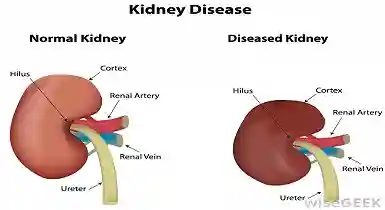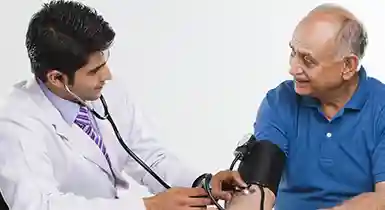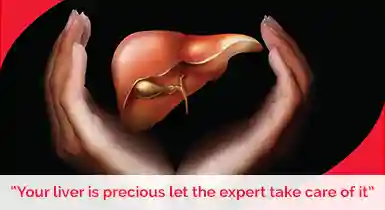Types of Kidney Disease

Kidneys are important organs that filter fluid and waste from your blood, and you cannot survive without them. Diseases that affect your kidneys’ ability to clean your blood can damage just your kidneys or impact other organs of your body. These medical problems can lead to chronic kidney disease or kidney failure. Some of the Types of Kidney Diseases Kidney diseases can be classified into the following types: Below are the types of kidney disease: Chronic Kidney Disease (CKD) It is characterised by gradual loss of kidney function over time. Often caused by conditions like high blood pressure, diabetes, or other diseases affecting the kidneys. The most common form of kidney disease is chronic kidney disease caused by high blood pressure and diabetes. Kidney failure is the last (most severe) stage of chronic kidney disease. This called end-stage renal disease or ESRD for short. Other causes include, autoimmune diseases, such as lupus and IgA nephropathy, Genetic diseases, polycystic kidney disease, Nephrotic syndrome and Urinary tract problems. Kidney Stones It occurs when solid masses form in the kidneys from crystals that separate from urine. It can cause severe pain when passing through the urinary tract. Risk factors include dehydration, certain diets, and metabolic disorders. Urinary Tract Infections (UTI) Any portion of the urinary system might be the source of these bacterial diseases. Infections in the urethra and bladder are often the most prevalent, and they do not result in health issues because their medical care is simple. However, kidney failure can result from these infections if they are not treated in time. Polycystic Kidney Disease It can be referred to as an inherited medical condition that leads to several kidney cysts. These cysts ultimately lead to kidney failure because they affect the normal functioning of a human kidney. Glomerulonephritis The inflammation of glomeruli is the condition known as Glomerulonephritis. These small structures in the kidneys are blood-filtering agents. The most prominent causes include congenital malformations, drugs and infections. Causes of Kidney Disease Causes of Acute Kidney Disease: Acute renal failure or acute kidney damage are medical terms used to describe when the kidneys suddenly stop functioning. The primary reasons are: Causes of Chronic Kidney Disease: The medical term for kidney failure, which lasts longer than three months, is chronic kidney failure. Symptoms of Kidney Disease Your kidneys are quite flexible. Some of the issues that might arise from having a kidney problem can be addressed by them. Thus, if your kidney impairment worsens gradually, your symptoms will also gradually become apparent. In fact, symptoms can not appear until the disease has progressed. Below are the symptoms of kidney disease: Kidney Stone Treatment Kidney stones are often treated by doctors according to the size, location, and kind of the stone. If you don’t get treated, little kidney stones could pass through your urine system. Serious medical attention may be required for larger kidney stones, kidney stones that obstruct your urinary tract, or kidney stones that pain a lot. You might need to visit the hospital and obtain fluids via an IV if you are vomiting and dehydrated. Invasive treatment is not usually necessary for small kidney stones. You might be able to pass a little stone by: Removal of Kidney Stones More intensive therapy may be necessary for large kidney stones that are difficult to pass naturally or that result in bleeding, kidney damage, or persistent UTIs. Using the following procedures, a urologist can either remove the kidney stone(s) or break them up into smaller pieces: Importance of the Kidney and its Functions FAQs on Types of Kidney Disease Q. How many types of kidneys are there? The kidneys are divided into two types: the left and right kidney. The kidneys are among the most important organs, and they serve as filters to eliminate waste from the bloodstream and regulate fluid balance in the body. Q. What is a type 3 kidney disease? During Stage 3 of Chronic Kidney Disease (CKD), your kidneys are less able to filter waste and fluid out of your blood due to mild to moderate impairment. This waste can accumulate within your body and start to create problems, such as high blood pressure, anaemia, and bone difficulties. Q. What are the 3 early warning signs of having a kidney disease? Signs of preliminary kidney disease could be irregular urination (as, for instance, increased frequency or diminished amount), blood and frothiness in it, haematuria – pain during defecation; oedema around the face, legs and ankles; elevated blood pressure. If experiencing any of these symptoms, it’s crucial to consult an experienced healthcare professional at Wockhardt Hospitals for proper evaluation and diagnosis. Q. What are the 2 main diagnostic tests for kidney disease? Kidney disease is evaluated using two simple tests – An eGFR – estimated Glomerular Filtration Rate blood test and a urine test known as the urine Albumin-Creatinine Ratio (uACR). Q. What is a normal kidney level? A Glomerular Filtration Rate (GFR) of more than 90 millilitres per minute per 1.73 square metres of body surface area, as determined by blood testing, is generally indicative of normal kidney function. Reduced GFR values might be a sign of compromised kidney health.
What is Liver Transplant? Understand Facts and Benefits

Transplant Surgery is a relatively newer field in medicine field. It involves replacing an old and failed organ with a new organ. The surgery in which a diseased liver in a sick patient is replaced by a healthy liver obtained from a live donor or a dead donor is called Liver Transplant. The new healthy liver performs function to maintain the patient’s life and other necessary vital chemical equilibrium in his body. The healthy person from whom the liver is obtained is surgically is called Donor. The patient in whom the liver is transplanted is called as Recipient. Liver diseases have been on the rise in India. As per the WHO data published in 2011, the disease figured among the top 20 causes of death in the country, taking the 9th spot. Liver disease form 20% of the ailments and large percentage constitute Liver Cancer; approximately 2000 patients die of Liver Cancer annually. Current Scenario of Liver Transplant in India Liver Transplantation is a surgery in which a diseased liver in a patient is replaced by a healthy liver obtained from a live donor or a brain dead donor. Liver transplant may be the only treatment option where the vital functioning capacity of the liver ceases. Liver transplant replaces the diseased liver with a healthy liver from a deceased donor or with part of a liver from a living donor. The current scenario in India is about 25,000 Liver Transplantations are needed in India annually, but approximately only 1200 to 1400 patients are able to get the benefit of this surgery. Each year, thousands of liver patients die as they wait for a donor or the transplant itself. Despite all of this, there is an upside trend. Since the last 9 years with accelerated growth in liver transplants over last 3 years. Cost of liver transplant varies. At some centres would it can range of 5-7 lakhs and even more. At some of the private centres is in the range of 18 to 20 lakhs. Liver Cirrhosis is a liver disease where the normal healthy tissue is replaced by scar tissue. Due to this the liver is not able to perform its regular functions. The disease is a slow progressing and blood flow is blocked in the liver, hampering the production of vital substance, from the liver affecting the overall health status of an individual. Some causes of liver cirrhosis are: Alcohol abuse, CHRONIC LIVER infection like hepatitis B & C, Fatty liver associated with obesity and diabetes are the most common causes of cirrhosis of the liver. Liver Cirrhosis is the most common reason for a liver transplant and at Wockhardt Hospitals we can provide this option having the infrastructure, clinical expertise and a transplant coordination team to assist in various organ donation protocols (liver donor or cadaver donor). All potential candidates for liver transplant undergo extensive testing to determine whether they are healthy enough to have a successful outcome following liver surgery. Who is eligible (patient) for Liver Transplantation? What are the Types of liver Transplant? – Diseased donor Liver Transplantation (DDLT): In this type of donation a person who suffers severe brain injury leading to brain death is selected. Family of deceased person are counselled and they agree to donate the organs as a gift of life on purely altruistic and voluntarily. Liver from such cadavers can be used for transplantation. Patients should be listed on the waiting list and organs are allocated as per Maharashtra Government rules by ZTCC ( Zonal Transplant Co-ordination Centre)which is not for profit Government organization of Liver Transplantation – Live Donor Liver Transplantation (LDLT) In Living Donor Part of the liver is taken from a healthy, relatively young person (18-55 yr) generally first degree blood relative, who is willing to donate to save life of his or her dear one.9 relationship have been defined as first degree by Government law are spouse,parents,grandparents,brother,sister,children,grandchildren. If no suitable donor is available from first degree relations, second degree or distant relatives can be considered. Approval from appropriate authority and state committee are required for living donor liver transplantation. Only after thorough check-up which also includes Psychologist and psychiatrist counselling, person is accepted as donor candidate Advantages of Living Liver Donation: Living liver organ donation provides those waiting for liver transplantation with many advantages over deceased organ donation. These include: What are the complications to the donor? These include: What are the complications to the recipient? What happens after the surgery? When can patient resume normal life after liver transplant surgery? How successful is liver transplant surgery? Liver Transplant At Wockhardt Hospitals Wockhardt Hospitals, a chain of tertiary care super-specialty hospitals has more than 25 years of experience in the creation and management of Super Specialty Hospitals in India. We are a premiere hospital in the country specializing in the liver transplant program. Wockhardt Hospitals, Mumbai Central, our Liver Specialists have the experience and expertise to accurately diagnose and offer world-class treatments for all forms of liver disease, including viral hepatitis, fatty liver, alcoholic liver disease, autoimmune liver diseases, genetic liver diseases and liver cancer. We are well equipped to perform liver transplant and it is an essential component of a broad medical and surgical strategy to manage all patients with liver disease with the therapy most appropriate to that patient. The Liver Transplant departments at Wockhardt Hospitals, is fully equipped with modern and State-of-The-Art technology, intensive care unit services and modular and integrated operation theatre that match international health and safety norms. We have a dedicated team assured only by a multidisciplinary approach and quality of care ,which distinguishes us from others. We take proud in taking care of our patients holistically , our team includes Liver transplant Surgeons, Physicians, intensivist, Nutritionist, Physiotherapist. A good outcome can be ensured only by optimizing the condition of the patient For further information or any gastroenterology services or liver transplant related query visit our experts at Wockhardt Hospitals. Wockhardt Hospitals is regarded as a centre of excellence
World Arthritis Day: 12 October, 2024

It’s In Your Hands. Take Action. World Arthritis Day, October 12 World Arthritis Day (WAD) is celebrated on October 12th each year and is supported by a year-long campaign. This year’s theme “It’s in your Hands Take Action”. The theme for the event is basically is to give people who are suffering from this disease an opportunity to live better , be mobile, live better and live life to the fullest. In India today over 180 million people are suffering from Rheumatoid Arthritis. As a symbol of support Wockhardt Hospitals took a convincing initiative and organised “Cyclothon” at various units to commemorate this day. It was a very & a very thoughtful way celebrate World Arthritis Day and brought out Wockhardt Hospitals ingenuity & to organise such an apt event! Here’s a glimpse how Mumbai came together to fight Arthritis and took up Wockhardt Hospital’s “Pedal To Move Initiative “on the 23rd of October. It was an overwhelming response with an almost 250 participants at Mira Road, 650 at Nashik and 300 plus at Nagpur. Bone and Joint at Wockhardt Hospitals The department of Bone and Joint at Wockhardt Hospitals provides a continuum of treatment and care with an integrated system of orthopaedic surgeons, supported by cutting edge technology and world class infrastructure. Our goal is to treat patient’s right from everyday aches and strains, sports injuries, trauma management to major joint replacement injuries. Our department provides a comprehensive state of the art approach to the prevention, assessment and treatment and habitation of the musculoskeletal conditions. Our Rheumatology services deliver expert diagnosis and world-class treatment to patients affected by rheumatic disorders. Early diagnosis and optimum treatment is important to prevent complications and deformities and also improve quality of life. Access to latest research, technology and techniques allow our specialty trained and reputed Rheumatology consultants, the ability to provide the high-quality care that our patients deserve. What is Rheumatoid Arthritis? An autoimmune disorder when the body’s immune system attacks its own body cells and tissues. In RA, the immune system attacks the tissue lining the joints and breaks it down over time. It is associated with pain, swelling, and often deformities particularly in the hands and knees .Flares are common for people with RA. Causes of Joint Pain Treatment of Joint Pain Role of Exercise in Joint Pain Exercise helps keeps the joints moving and strengthens the muscles around them. Home Remedies for Joint Pain Surgical Treatment for Joint Pain In case the joint pain does not reduce with conservative line of treatment Joint replacement surgery is now a common procedure done now days and can be recommended after evaluation of the severity and other related investigations of your joint condition. Some of these procedures are: Joint pain is a debilitating condition and can worsen in time , to know and understand this condition, medical treatment , further management and investigations do visit us at Wockhardt Hospitals. Wockhardt Hospitals, a chain of tertiary care super-specialty hospitals has more than 25 years of experience in the creation and management of Super Specialty Hospitals in India. We are a premiere hospital in the country specializing in the treatment of musculoskeletal disorders. We provide comprehensive orthopaedic care to our patients. The bone and joint program at Wockhardt Hospitals makes it a centre for excellence in orthopaedics with highly skilled clinical expertise. For further information or any orthopaedic related query visit our experts at Wockhardt Hospitals. Wockhardt Hospitals is regarded as a centre of excellence the healthcare domain, having facilities in North Mumbai (Mira road), South Mumbai (Mumbai Central), Navi Mumbai (Vashi), Nagpur, Nasik, Rajkot and Surat. Wockhardt Hospitals has state-of-the-art infrastructure. Our prime objective is patient safety and quality of care at all levels. The guiding philosophy is to serve and enrich the Quality of Life of patients and to make life win.
Treatment for Appendicitis

The appendix is part of the large intestine located at the right lower, part. It looks like a small finger-like organ. The inside of the appendix forms a small sac that usually opens into the large intestine. When the appendix is blocked it causes an inflammatory reaction and predisposes it to bacterial growth and infection. Appendicitis is caused because of such blockages, due to hard rock-like stool; inflammation of lymph nodes in the intestines, or infections likes parasites. Generally the first symptom of appendicitis is usually a mild fever and pain around naval area. The pain in appendicitis usually worsens in and moves to the lower right side of the stomach and can associated with Vomiting, nausea, and loss of appetite. If the appendicitis is not treated in time (removal of appendix) the infected appendix, can burst and spread bacteria. The complications of appendicitis that can arise from a ruptured appendix which can give rise to an abscess (an infection of pus) that can spread throughout the abdomen, causing peritonitis, which can be life threatening. Treatment for Appendicitis: Before the appendectomy procedure diagnostic investigations will be carries out such as : Appendectomy Procedure is the standard treatment for appendicitis: Removal of the appendix is generally the mode of line of treatment for appendicitis. This operation is known as an appendectomy or appendectomy (appendix removal). This is because it’s considered safer to remove the appendix than run the risk of the appendix bursting. Appendectomy surgery: Appendicitis surgery is carried out under general anaesthetic using either a keyhole or open appendix surgery technique for appendectomy procedure. Antibiotics are given before an appendectomy to cover any chances of infections. 1) Keyhole technique for Appendix surgery (minimally invasive surgery) Keyhole surgery (laparoscopy) is usually the preferred method of removal of the appendix (Appendicitis operation), because the recovery tends to be quicker than with open surgery. The appendectomy procedure through this technique, involves making 4-inch incision small incisions on the abdomen. A laparoscope which is a small tube containing a light source and a camera is inserted through the abdomen, which relays images of the inside of the abdomen to a television monitor. During this type of appendicitis operation gas is pumped through to inflate the abdominal cavity which allows the surgeon to see the appendix more clearly and small instruments are inserted to remove the appendix. Once the appendix has been removed in the appendicitis operation, the incisions are closed with dissolvable stitches. One of the main advantages of keyhole surgery is the recovery time is short and most people can leave hospital is a few days. 2) Open surgery for treatment for appendicitis: In some situations keyhole surgery may not be recommended and open surgery is performed instead for removal of appendix- Appendectomy: Complications of Appendectomy please seek medical attention: In case you are experiencing any of signs or symptoms related to appendicitis or would like to know more details about digestive care disorders, please contact our centres at Wockhardt Hospital. Wockhardt Hospitals is one of the countries premium hospitals that are focused on the prevention, diagnosis and treatment of digestive diseases and illnesses. Wockhardt Hospitals, a chain of tertiary care super-specialty hospitals has more than 25 years of experience in the creation and management of Super Specialty Hospitals in India. We are a premiere hospital in the country specializing in the treatment of digestive disorders. We provide comprehensive digestive care to our patients. Our Gastroenterology Surgery and Minimal Invasive Surgery Department at Wockhardt Hospitals is regarded, as one of the centre’s for excellence. Our clinical expertise and infrastructure support the treatment of health conditions, needing laparoscopic surgery or general surgery. For further information visit Digestive Care Speciality at Wockhardt Hospitals. Wockhardt Hospitals is regarded as a centre of excellence the healthcare domain, having facilities in North Mumbai (Mira road), South Mumbai (Mumbai Central), Navi Mumbai (Vashi), Nagpur, Nasik, Rajkot and Surat. Wockhardt Hospitals has state-of-the-art infrastructure. Our prime objective is patient safety and quality of care at all levels. The guiding philosophy is to serve and enrich the Quality of Life of patients and to make life win.
Symptoms of Diabetes – Endocrinology

The most common non communicable disease affecting India today is Diabetes Mellitus. It is a metabolic disorder, in which an individual has an increased level of blood sugar. As per research, it currently affects an estimated 143 million people worldwide and the number is growing rapidly. In India, about 5 per cent population suffers from diabetes. Diabetes can be regarded as a potential epidemic in India with more than 62 million diabetic individuals currently diagnosed with the disease. What is Diabetes? Diabetes is a disorder affecting the pancreas which produces the hormone insulin. Insulin helps the body use food for energy. The condition is due to either insufficient insulin being produced or no insulin being secreted by the pancreatic cells, or both. Insulin works together with glucose in the bloodstream to help it enter the body’s cells for all metabolic activity. Therefore if insulin does not functioning properly, glucose cannot enter the cells and this produces an imbalance. This end result is that glucose levels in the blood sugar tend to rise, creating a condition of high blood sugar or diabetes, and leaving the cells without glucose for the basic energy in the body. If left untreated, Diabetes can tend to cause various complications and affects the vital organs. Some Complications are Retinopathy (eye disease), Nephropathy (kidney disease) & Neuropathy (nerve disease). What are the Symptoms of Diabetes? The most common symptom of diabetes is fatigue and increased thirst and hunger, along with frequent urination. Excessive sweating Diabetes symptoms can vary from patient to patient depending on the type and age. What are the types of diabetes? There are two common forms of diabetes: Type 1 Diabetes and Type 2 Diabetes. What is Type 1 Diabetes? In Type 1 diabetes: Affects the age group of 20-30, but it can occur at any age In type 1 Diabetes, The insulin-producing cells are damaged and no insulin is produced in the body for it to utilise it for energy. Generally one would have to use insulin injections to control their blood glucose in this type of Diabetes. What is Type 2 Diabetes? Affects 40 yrs. of age and who are predisposed to being overweight. In this condition enough insulin is not produced or the insulin does not work optimally. It generally involves a combination of diet, weight management and exercise. Sometimes treatment also may include oral glucose-lowering medications or insulin injections. What are the causes of diabetes? How is diabetes diagnosed? 1) Fasting blood sugar and Post Prandial blood sugar level. A Normal fasting blood glucose is between 70 and 100 mg/dl. A person is said to be diabetic if his fasting blood glucose level of 126 mg/dl we say he is crossed the borderline and if the random blood glucose level is 200 mg/dl. 2) Another accurate test to measure is Glycosylated haemoglobin, or HbA1c, in the blood. This test determines blood glucose control for the past 2 to 3 months. How to cure Diabetes? Diabetes is treated and controlled by the following: Maintaining your blood sugar level by having a balance diet, taking the medication and exercise is vital for controlling diabetes. It is advisable also to maintain Blood cholesterol and triglyceride (lipid) levels. Managing blood pressure is also essential. How to Control & Prevent Diabetes? Living with diabetes can be difficult. You need to take full control of your diabetes…. It’s in your hands to make it better. In case of any further queries regarding diabetes surgery, treatment, investigation and overall care do visit us at Wockhardt Hospitals. Wockhardt Hospitals, a chain of tertiary care super-specialty hospitals has more than 25 years of experience in the creation and management of Super Specialty Hospitals in India. We are a premiere hospital in the country specializing in the treatment of all medical conditions. We provide comprehensive diagnostic and treatment under one roof to our patients. Our medical speciality at Wockhardt Hospitals has renowned clinical expertise in treating diabetes and providing overall management. Wockhardt Hospitals have been regarded as centers of excellence in medical science with facilities in North Mumbai (Mira road), South Mumbai (Mumbai Central), Navi Mumbai (Vashi), Nagpur, Nasik, Rajkot and Surat. Wockhardt Hospitals is having state-of-the-art infrastructure. Our prime objective is patient safety and quality of care all levels. The guiding philosophy is to serve and enrich the Quality of Life of patients and to make life win.
Proctoscopy: What is Proctoscopy & Its Procedure?

Proctoscopy is medical procedure used to examine the anal cavity, rectum, or sigmoid colon with an instrument called a proctoscope. The procedure is also known as rectoscopy. The proctoscopy procedure is done prior to rectal surgery or conducted as part of a physical examination of a patient with haemorrhoids, rectal bleeding case, removal or monitor polyps, screening of cancer, cause for diarrhoea or constipation or other symptoms of a rectal disorder . The meaning of proctoscopy technically means that it’s a visual medical procedure done through a hollow tube-like speculum for inspection of the rectum and anal cavity. Proctoscopy Procedure: Ensure that the rectum is cleaned by an enema before the procedure. The procedure is done in the opd and does not require anaesthesia. The doctor will use a lubricating agent before to examine the rectum and then insert the proctoscope .Air is introduced to help doctor see well for any lesions. Proctoscopy Side Effects: Complications are rare you may experience rectal bleeding as a result of the insertion of the proctoscope or infection. If you any further queries regarding this procedure or if you have been advised the procedure, based on symptoms you have experienced, please contact Wockhardt Hospitals. Wockhardt Hospitals, a chain of tertiary care super-specialty hospitals has more than 25 years of experience in the creation and management of Super Specialty Hospitals in India. We are a premiere hospital in the country specializing in the treatment of digestive disorders. We provide comprehensive orthopaedic care to our patients. The digestive care centre at Wockhardt Hospitals makes it a centre for excellence with our clinical expertise, to treat such conditions affecting the digestive system. For further information or any gastroenterology medical related query visit our experts at Wockhardt Hospitals. Wockhardt Hospitals is regarded as a centre of excellence the healthcare domain, having facilities in North Mumbai (Mira road), South Mumbai (Mumbai Central), Navi Mumbai (Vashi), Nagpur, Nasik, Rajkot and Surat. Wockhardt Hospitals has state-of-the-art infrastructure. Our prime objective is patient safety and quality of care at all levels. The guiding philosophy is to serve and enrich the Quality of Life of patients and to make life win. What is Sigmoidoscopy? Sigmoidoscopy is a diagnostic procedure used in gastroenterology. The definition of sigmoidoscopy simple means a medical examination of the sigmoid colon with a flexible tube which is inserted through the anus. A sigmoidoscopy is also called flexible sigmoidoscopy. A sigmoidoscopy is used also a general screening tool for colon cancer. Difference Between Sigmoidoscopy vs Colonoscopy Colonoscopy and Sigmoidoscopy use a thin flexible tube with a camera at the end to look at the colon. The difference between colonoscopy and sigmoidoscopy is the portion of the colon viewed. Colonoscopy examines the entire colon, while sigmoidoscopy CAN ONLY view the left side of the colon. The latter is an easier procedure and sedation is not required. A colonoscopy detects a complete view of the colon which the sigmoidoscopy can miss and the preparation for the patient. What is Flexible Sigmoidoscopy? Flexible sigmoidoscopy (flexible endoscope) can be defined as a procedure by which a gastroenterologist examines the rectum and the lower (sigmoid) colon. It is flexible tube around 60 cm long with minimal thickness. During the procedure tissue sample are taken to diagnose ulcers, abnormal cells, polyps and cancer. What is the Sigmoidoscopy Procedure? Generally any patient who is complains of altered bowel habits, rectal bleeding, abdominal pain or unexplained weight loss can be advised a sigmoidoscopy. Wockhardt Hospitals, a chain of tertiary care super-specialty hospitals has more than 25 years of experience in the creation and management of Super Specialty Hospitals in India. We are a premiere hospital in the country specializing in the treatment of digestive disorders. We provide comprehensive orthopaedic care to our patients. The digestive care centre at Wockhardt Hospitals makes it a centre for excellence with our clinical expertise, to treat such conditions affecting the digestive system. For further information or any gastroenterology medical related query visit our experts at Wockhardt Hospitals. Wockhardt Hospitals is regarded as a centre of excellence the healthcare domain, having facilities in North Mumbai (Mira road), South Mumbai (Mumbai Central), Navi Mumbai (Vashi), Nagpur, Nasik, Rajkot and Surat. Wockhardt Hospitals has state-of-the-art infrastructure. Our prime objective is patient safety and quality of care at all levels. The guiding philosophy is to serve and enrich the Quality of Life of patients and to make life win. FAQs on Proctoscopy Q. What is the proctoscopy test price in India? In India, the cost of a proctoscopy test usually varies between ₹1500 and ₹5000, based on the location of the hospital, the need for additional procedures, and consultation charges. Prices can vary depending on factors, such as whether biopsy, anesthesia, or consultation expenses are included. Q. Why is a proctoscopy done? A proctoscopy, also referred to as a rigid sigmoidoscopy technique, provides an internal view of the anal canal and rectum. It is usually performed to identify the presence of hemorrhoids, polyps, tumors, and inflammation. Q. Is proctoscopy done in fissure? Yes, proctoscopy can be used to evaluate fissures. It provides direct visualization of the anal canal and rectum, aiding in the diagnosis, severity assessment, and identification of any underlying medical conditions, such as hemorrhoids or inflammatory bowel disease, that may contribute to fissure formation. Q. What is the difference between a colonoscopy and a proctoscopy? The colon is observed using a colonoscope in a process known as ‘colonoscopy,’ while the observation of the anus and rectum takes place through proctoscopy. A colonoscope is an instrument that is inserted through the rectum, resembling a proctoscope. To visualize every area of the colon, it is longer and more flexible.
Liver Diseases: Causes, Diagnosis & Treatment

The liver is the biggest organ in the human body and is responsible for various functions. It plays a major role in metabolism and removal of harmful substances in the bloodstream, including drugs and alcohol. It stores excess nutrients .It manufactures protein s for haemolytic activity of the body. Helps in digestion by producing bile and stores glucose in the form of glycogen. It aids in fat metabolism. Liver Cirrhosis is a liver disease where the normal healthy tissue is replaced by scar tissue. Due to this the liver is not able to perform its regular functions. The disease is a slow progressing and blood flow is blocked in the liver, hampering the production of vital substance, from the liver affecting the overall health status of an individual. Some Causes of Liver Cirrhosis: Alcohol abuse, CHRONIC LIVER infection like hepatitis B & C, Fatty liver associated with obesity and diabetes are the most common causes of cirrhosis of the liver. Some significant Symptoms include: Liver Cirrhosis often has no signs or symptoms until liver damage is extensive. Some include Fatigue, Bleeding easily, Itchy and Yellow discoloration in the skin and eyes Fluid accumulation in the abdomen with Loss of appetite and feeling of Nausea. Swelling in your legs and Weight loss. It can progress to hepatic encephalopathy causing Confusion, drowsiness and slurred speech Diagnosis of Liver Disease: Before treatment of liver disease, the doctor will carry out investigations for diagnosis and progress of the disease. This will help to plan out the liver disease treatment. The tests include, for the cure to liver cirrhosis: Treatment for Liver Cirrhosis: Treatment for liver cirrhosis depends on the cause and extent of liver damage. The main aim of liver disease treatment is to slow the progression of scar tissue in the liver and to prevent or treat symptoms and complications of liver cirrhosis. AS PART OF treatment for cirrhosis hospitalization maybe recommended. Some Modalities in Cirrhosis Treatments are: A) Conservative treatment of liver cirrhosis B) Treatment for complications of Liver Cirrhosis C) Liver transplantation (liver surgery) Liver transplant may be the only treatment option where the vital functioning capacity of the liver ceases. Liver transplant replaces the diseased liver with a healthy liver from a deceased donor or with part of a liver from a living donor. Liver Cirrhosis is the most common reason for a liver transplant and at Wockhardt Hospitals we can provide this option having the infrastructure, clinical expertise and a transplant coordination team to assist in various organ donation protocols (liver donor or cadaver donor). All potential candidates for liver transplant undergo extensive testing to determine whether they are healthy enough to have a successful outcome following liver surgery. To know about liver cirrhosis, liver transplant surgery, treatment option for liver diseases or any digestive care condition, please contact our centres at Wockhardt Hospitals. Wockhardt Hospitals, a chain of tertiary care super-specialty hospitals has more than 25 years of experience in the creation and management of Super Specialty Hospitals in India. We are a premiere hospital in the country specializing in the treatment of digestive disorders. We provide comprehensive digestive care to our patients. The digestive care centre at Wockhardt Hospitals makes it a centre for excellence with our clinical expertise, to treat such conditions affecting the digestive system. For further information or any gastroenterology services or liver transplant related query visit our experts at Wockhardt Hospitals. Wockhardt Hospitals is regarded as a centre of excellence the healthcare domain, having facilities in North Mumbai (Mira road), South Mumbai (Mumbai Central), Navi Mumbai (Vashi), Nagpur, Nasik, Rajkot and Surat. Wockhardt Hospitals has state-of-the-art infrastructure. Our prime objective is patient safety and quality of care at all levels. The guiding philosophy is to serve and enrich the Quality of Life of patients and to make life win.
What is Bariatric Surgery?

Bariatric or weight loss surgery comprises of procedures like gastric bypass, gastric band etc. that are performed on people suffering with obesity. The aim of the surgery for the patient is to achieve significant weight loss by opting for the most suitable procedure. What does bariatric surgery involve? Bariatric surgical procedures aims at weight loss by restricting the holding capacity of the stomach which causes malabsorption of nutrients or the procedure can be a combination of both gastric restriction and malabsorption. Bariatric procedures also often cause hormonal changes which suppress the feeling of hunger bringing about a feeling of fullness. Some techniques of Bariatric surgery performed at Wockhardt Hospital which is a premium institute for bariatric surgery as per international standards. Most weight loss surgeries today are performed using minimally invasive techniques laparoscopic surgery. The various procedures lead to weight loss is: 1) Reduction in the size of the stomach through placement of Gastric Bypass this is often called the ‘gold standard’ of weight loss surgery. Some Advantages and Disadvantages: 2) Sleeve Gastrectomy or Biliopancreatic Diversion with Duodenal Switch The Laparoscopic Sleeve Gastrectomy – often called the sleeve gastrectomy – is performed by removing approximately 80 percent of the stomach. The remaining stomach is a tubular pouch that resembles a banana. Some Advantages and Disadvantages… 3) Adjustable Gastric Band Surgery The Adjustable Gastric Band – often called the band – involves an inflatable band that is placed around the upper portion of the stomach, creating a small stomach pouch above the band, and the rest of the stomach below the band. The clinical impact of the band seems to be that it reduces hunger, which helps the patients to decrease the amount of calories that are consumed. Advantages: Disadvantages: Bariatric Surgery at Wockhardt Hospitals is recognised as a centre of excellence Metabolic and Bariatric Surgery. Our renowned doctor, Dr Raman Goel and his specialised and dedicated team provide the clinical expertise for managing and treating obesity through this super speciality surgery. The team is guided and has immense experience with all surgical protocols for all procedures and Pre & Post-surgical Management. Our centre of Excellence at Wockhardt Hospital is supported by internationally trained nutritionist, counsellor & bariatric physician. The department conducts Weight loss surgery support groups’ benefits and motivates post-surgery patients. These support groups helps patients achieve better weight loss and deal with the issues related to following bariatric diet, recipes and exercise by sharing experiences and communicating with peers. Our world class infrastructure and cutting edge technology complement our teams’ efforts bringing about overall success of the patient at Wockhardt Hospital. For Further queries and information on Bariatric Surgery please visit our centres at Wockhardt Hospital. Wockhardt Hospitals, a chain of tertiary care super-specialty hospitals has more than 25 years of experience in the creation and management of Super Specialty Hospitals in India. Wockhardt Hospitals is regarded as a centre of excellence the healthcare domain, having facilities in North Mumbai (Mira road), South Mumbai (Mumbai Central), Navi Mumbai (Vashi), Nagpur, Nasik, Rajkot and Surat. Wockhardt Hospitals has state-of-the-art infrastructure and eminent doctors. Our prime objective is patient safety and quality of care at all levels. The guiding philosophy is to serve and enrich the Quality of Life of patients and to make life win.














